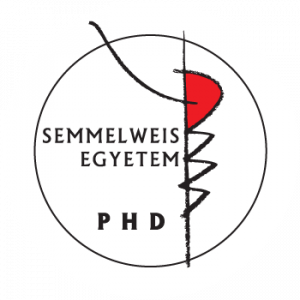 Our PhD Program “Interdisciplinary Social Sciences” is one of the programs (No. 4/3.) at the PhD School of Semmelweis University and it is administered by staff members at the Institute of Mental Health. The language of instruction in the program is Hungarian. The program focuses on individuals, families and communities with successful life strategies and problem-solving skills, and it applies mental health aspects and an interdisciplinary research approach.
Our PhD Program “Interdisciplinary Social Sciences” is one of the programs (No. 4/3.) at the PhD School of Semmelweis University and it is administered by staff members at the Institute of Mental Health. The language of instruction in the program is Hungarian. The program focuses on individuals, families and communities with successful life strategies and problem-solving skills, and it applies mental health aspects and an interdisciplinary research approach.
Our Hungarian website: https://semmelweis.hu/mental/doktori-kepzes/
The PhD Program is co-ordinated by Prof. Beáta DÁVID. The research topics and focus areas of the program are as follows:
- factors contributing to the physical and mental well-being of individuals, couples, families and communities
- mobilising social and community relationships,
- value systems and symbolic capital (e.g. ideologies, religion),
- maintaining and developing individual resources,
- institutional forms of promoting physical and mental well-being.
Supervisors and proposed research topics in the PhD Program:
- FRUZSINA ALBERT : The analysis of interpersonal relationships and physical/mental health from a sociological perspective
- GERGŐ BARANYI: The impact of air pollution and other environmental factors on early childhood development
- VERONIKA BÓNÉ : Associations between childbearing and mental health, the social context of childbearing
- ILDIKÓ DANIS: The impact of early experiences, parenting and family relationships on early childhood and later life development and mental health
- BEÁTA DÁVID : Mental health and social capital: psycho-social resources of individual, family and community
- PÉTER GAÁL: The function and significance of the social capital in the healthcare system
- ÉVA HUSZTI: The role of social network in the Quality of Life
- TAMÁS JOÓ: Digital health and data-driven solutions in the 21st century
- MÁTÉ JOÓB: The connection between religiousness and forgiveness, examining forgiveness as a prosocial change
- JUDIT LÁM: Patient safety – health and social context
- ANETT MÁRIA LELESZI-TRÓBERT: Individual and social dimensions of active ageing and care for older people
- TAMÁS MARTOS : The role of personal goals and life goals in positive mental health: individual, social and societal approaches
- BALÁZS MATUSZKA: Studying the psychosocial factors of somatic and mental health in multipple levels
- ENDRE NAGY : Social and Religious Theories on Normal and Pathologic Behaviours
- ZSUZSANNA PAPP : Psychosocial approach in the investigation of wellbeing of children, youth and their families with chronic conditions
- MELINDA PÉNZES : Health security challenges of tobacco use and other leading behavioral risk factors of health loss, and health-related cybersecurity
- ATTILA PILINSZKI : Family Well-being in the 21st Century
- PÉTER POLLNER : Data-based health burden investigations
- GABRIELLA PUSZTAI: Theoretical and empirical application of social capital concept in investigation of religious communities
- MIKLÓS SZÓCSKA: Impact of eHealth solutions on the health care system and the shortage of health care workers
- ÉVA SZTÁRAY KÉZDY: Investigation of changing parental roles in today’s Hungary
- SZABOLCS TÖRÖK: Social and mental health aspects of preventive approach to health protection
- PÁL PÉTER TÓTH: The influence of migration – particularly moving to other countries – on personal life, human relations and relative welfare
- IBOLYA TÚRI: Individual, community and social determinants of the well-being and quality of life of people with disabilities
The English website of the PhD School of the University can be accessed here: http://phd.semmelweis.hu/en/